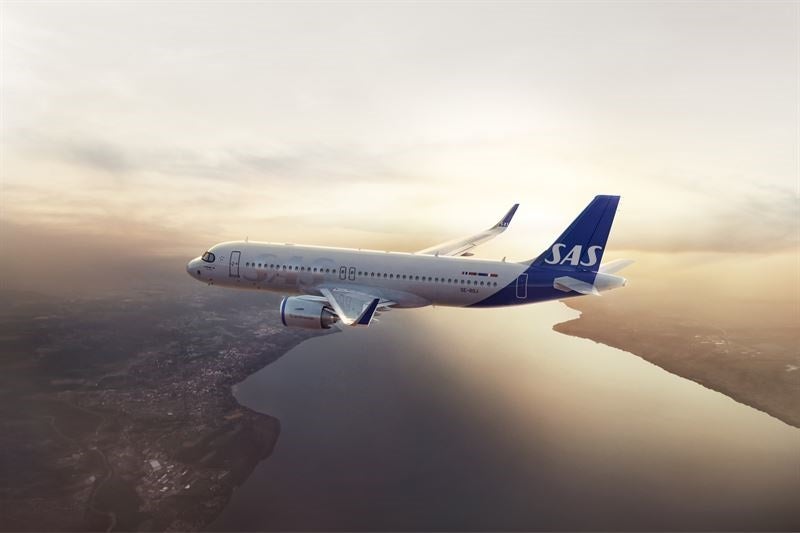
Scandinavian Airlines (SAS), in partnership with Shell, Vattenfall and LanzaTech, is exploring the production of synthetic sustainable aviation fuel (SAF), also referred to as electrofuel, with the LanzaJet ‘Alcohol to Jet’ technology in Sweden.
The technology was developed by LanzaTech and the US Department of Energy’s (DOEs) Pacific Northwest National Laboratory (PNNL).

Discover B2B Marketing That Performs
Combine business intelligence and editorial excellence to reach engaged professionals across 36 leading media platforms.
As part of this project, the partners will examine the production of synthetic SAF using fossil-free electricity and recycled carbon dioxide (CO₂) from district heating on a massive scale.
LanzaTech CEO Jennifer Holmgren said: “The aviation sector faces incredible challenges getting the volumes of SAF needed for sustainable flight.
“This project is the start of delivering on these volumes and by reusing carbon dioxide and fossil-free power we have an opportunity for unprecedented scale.”
For this project, Vattenfall will be responsible for examining clean electricity, hydrogen production and CO₂ recovery while Shell will focus on fuel production, logistics and will purchase the electrofuel.

US Tariffs are shifting - will you react or anticipate?
Don’t let policy changes catch you off guard. Stay proactive with real-time data and expert analysis.
By GlobalDataLanzaTech has agreed to contribute by producing ethanol from input gas streams, with parties licensing the technology for transforming ethanol into electrofuel.
SAS will be part of the project as a potential purchaser of electrofuel.
The companies intend to set up a production facility at Forsmark on Sweden’s east coast by 2026-2027, with a capacity to produce 50,000t of electrofuel on a yearly basis.
Once fully operational, the new facility will have the capacity to meet 25% of SAS’ sustainable aviation fuel demand in the 2030s.
SAS president and CEO Anko van der Werff said: “SAS and Sustainability go hand in hand. That’s why we are incredibly proud to be part of this unique project where ambitious sustainability goals and agendas come together.
“Our joint commitment in finding ways to enable large-scale production of a more sustainable aviation fuel is a fantastic opportunity to accelerate the commercialisation of SAF, and thus SAS’s transition towards industry-leading zero-emission flights.”





